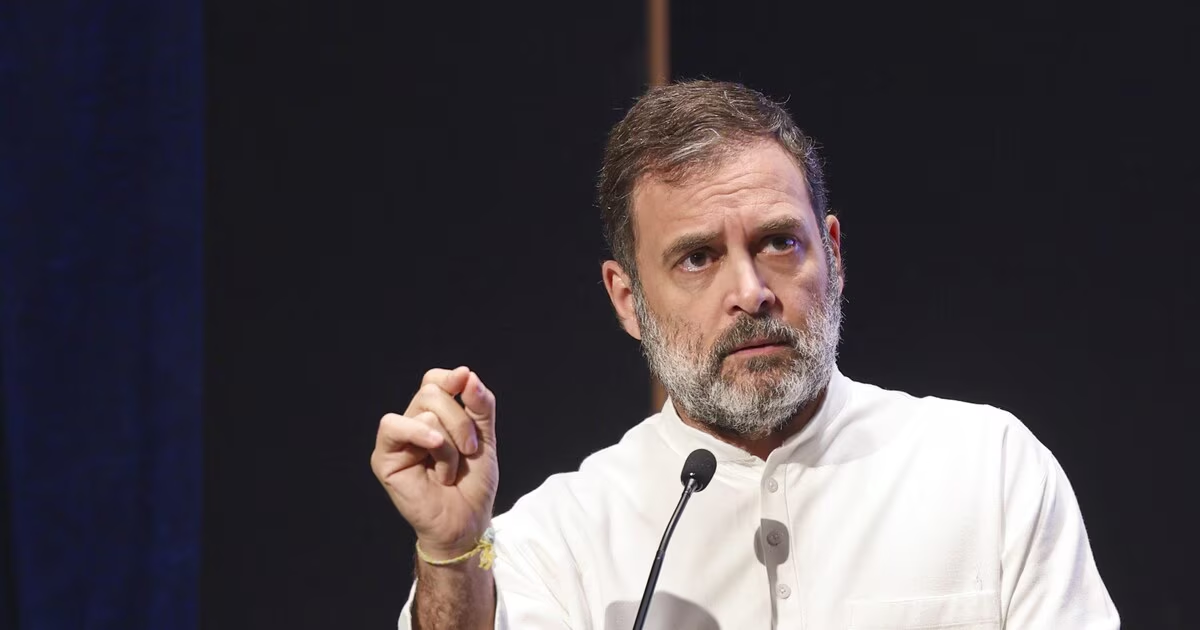Rahul Gandhi Calls Out BJP, RSS for Institutional Domination
At the inauguration of Congress’s new headquarters in New Delhi, Rahul Gandhi launched a scathing attack on the BJP and Rashtriya Swayamsevak Sangh (RSS). He accused them of capturing every significant institution in India and undermining the Constitution, which he referred to as the “fruit of the freedom movement.”
Gandhi’s criticism was further fueled by RSS chief Mohan Bhagwat’s controversial remarks about India’s Independence. Bhagwat, in his earlier speech, suggested that India’s “true Independence” was realized with the construction of the Ram Temple in Ayodhya, sparking political uproar.
Mohan Bhagwat’s Remarks Spark Controversy
Mohan Bhagwat’s statement that the Ram Temple consecration marked India’s actual Independence drew sharp criticism from Gandhi, who labeled it as an attack on the sacrifices of freedom fighters and the sanctity of the Constitution. “He [Bhagwat] would have been charged with treason in any other country,” Gandhi said, emphasizing that the RSS chief’s remarks disregarded the historic significance of India’s Independence in 1947.
Bhagwat’s reference to the centuries of “parachakra” or foreign invasions and his assertion that the Ram Temple represents India’s liberation added fuel to the political fire.
Congress’s Symbolic Move Amid Political Clashes
The inauguration of the Congress’s new headquarters was portrayed as a powerful symbol of resilience and continuity. Gandhi highlighted how the new building represented the sacrifices of millions who fought for India’s freedom and democracy.
“This building is not ordinary; it stands for the hard work and dedication of those who have nurtured India’s democracy. It is a testament to the spirit of the Constitution,” Gandhi said.
JP Nadda Hits Back with Strong Allegations
Responding to Gandhi’s statements, BJP President JP Nadda accused Congress of aligning with “Urban Naxals” and the so-called “Deep State” that allegedly aims to tarnish India’s global image. In a tweet, Nadda said, “These remarks show the frustration of a party that has lost relevance. They are aligned with forces that want to defame, demean, and discredit India.”
Nadda’s rebuttal not only dismissed Gandhi’s allegations but also redirected the narrative by questioning Congress’s commitment to India’s progress.
Political Implications and Future Prospects
The war of words between Rahul Gandhi and JP Nadda highlights the deepening polarization in Indian politics. The BJP continues to emphasize its vision of cultural nationalism, while the Congress reiterates its commitment to constitutional democracy and secularism.
The RSS’s influence on national politics remains a contentious issue, with critics accusing it of undermining the Constitution’s values. On the other hand, the BJP counters these claims by asserting its dedication to India’s cultural heritage and global stature.
A Battle for India’s Political Narrative
Rahul Gandhi’s pointed criticism and JP Nadda’s counter-allegations underscore the ongoing battle for India’s political narrative. As the country gears up for the 2024 general elections, the debate over institutional integrity, constitutional values, and cultural identity is likely to take center stage.
The comments by Gandhi and Bhagwat, and the ensuing political backlash, reflect the evolving dynamics of India’s democracy. With both parties ramping up their rhetoric, the focus remains on how these narratives resonate with the electorate in the coming months.


Leave a Reply